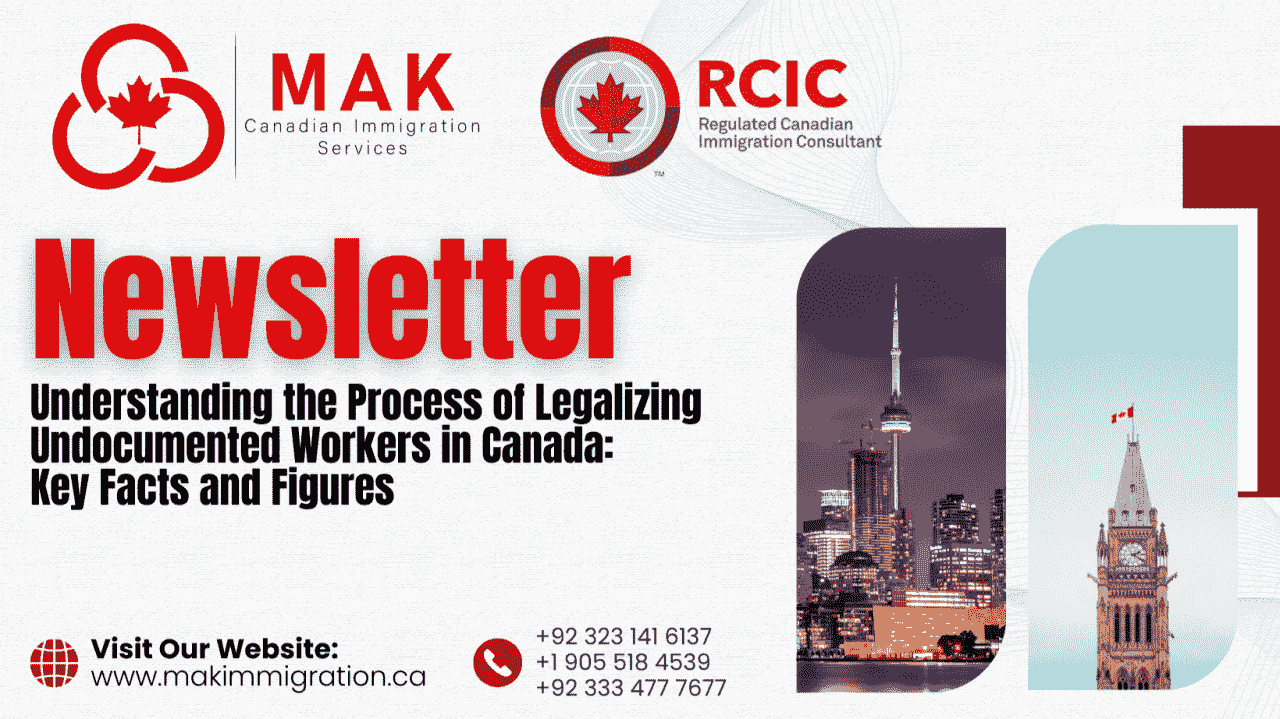Legalizing Undocumented Workers in Canada is a significant topic as undocumented workers in Canada are a wide range of individuals who reside and work in the country without proper authorization. No matter what their situation is, undocumented immigrants are crucial to Canada’s economy and society. This piece talks about the most important facts and numbers about immigrants who don’t have papers and what Immigration, Refugees, and Citizenship Canada (IRCC) is doing to help them become part of society.
Legalizing Undocumented Workers in Canada: Who Are Undocumented Migrants?
- Continue working or keep your study visa open for an extended period.
- Choosing to stay in Canada after an unsuccessful refugee claim.
No numbers give an accurate picture of the amount and types of undocumented immigrants living in Canada. Different academic sources have given figures that range from 20,000 to 500,000 people.
An illegal migrant is a person who does not have permission to live or work in Canada. Some people may have stayed in Canada after their refugee claim was turned down, while others may have overstayed their temporary status.
IRCC Efforts in Legalizing Undocumented Workers in Canada
Over the past few years, Immigration, Refugees, and Citizenship Canada (IRCC) has put in place regularization programs, such as the Guardian Angels temporary public policy. It was set up during the pandemic as a way for people who were working directly with patients and their families to get permanent residence after a failed refugee claim to do so.
After the policy was put into place, over 9,100 people, including family members of main applicants, got permanent residence through this route between December 2020 and December 31, 2023.
Right now, the temporary public policy for out-of-status construction workers in the Greater Toronto Area is in place. This strategy recognizes the economic value of construction workers while also protecting them from the risks that come with not having a high status. Since the policy’s inception, more than 1,000 individuals, including family members of main applicants, have gained entry.
Key Messages
Currently, IRCC is looking into possible ways to legalize certain people who have been making important social and economic contributions to Canadian communities even though they do not have immigration status.
We make sure that the opinions of people who have lived experience are heard by talking to constituent groups like the Canadian Council for Refugees and the Migrant Rights Network on a regular basis. We value our relationship with you.
Supplementary Information
A new public policy about out-of-status construction workers is in force from January 2, 2024, to July 2, 2024. This is to give eligible beneficiaries more time to register.
Why Legalizing Undocumented Workers in Canada Matters
Regularizing undocumented workers is not merely about compliance with immigration laws; it is also about recognizing the contributions of undocumented workers and mitigating the vulnerabilities associated with their status, such as limited access to healthcare, education, and legal protections.
Economic Impact:
Undocumented Workers play a vital part in Canada’s economy, as seen by the industries that profit from their labor, including construction, agriculture, and caregiving. Social Integration: Regularization promotes community stability by allowing people to fully participate in society, from accessing public services to contributing to local economies.
Canada’s commitment to addressing undocumented migration is evident through public policies like those for out-of-status construction workers in the Greater Toronto Area. IRCC aims to balance immigration integrity with economic and social needs, ensuring full integration into society.
For detailed guidance and professional assistance in legalizing undocumented workers in Canada, please reach out to MAK Immigration. Our skilled team is prepared to provide expert support tailored to your specific immigration needs.

